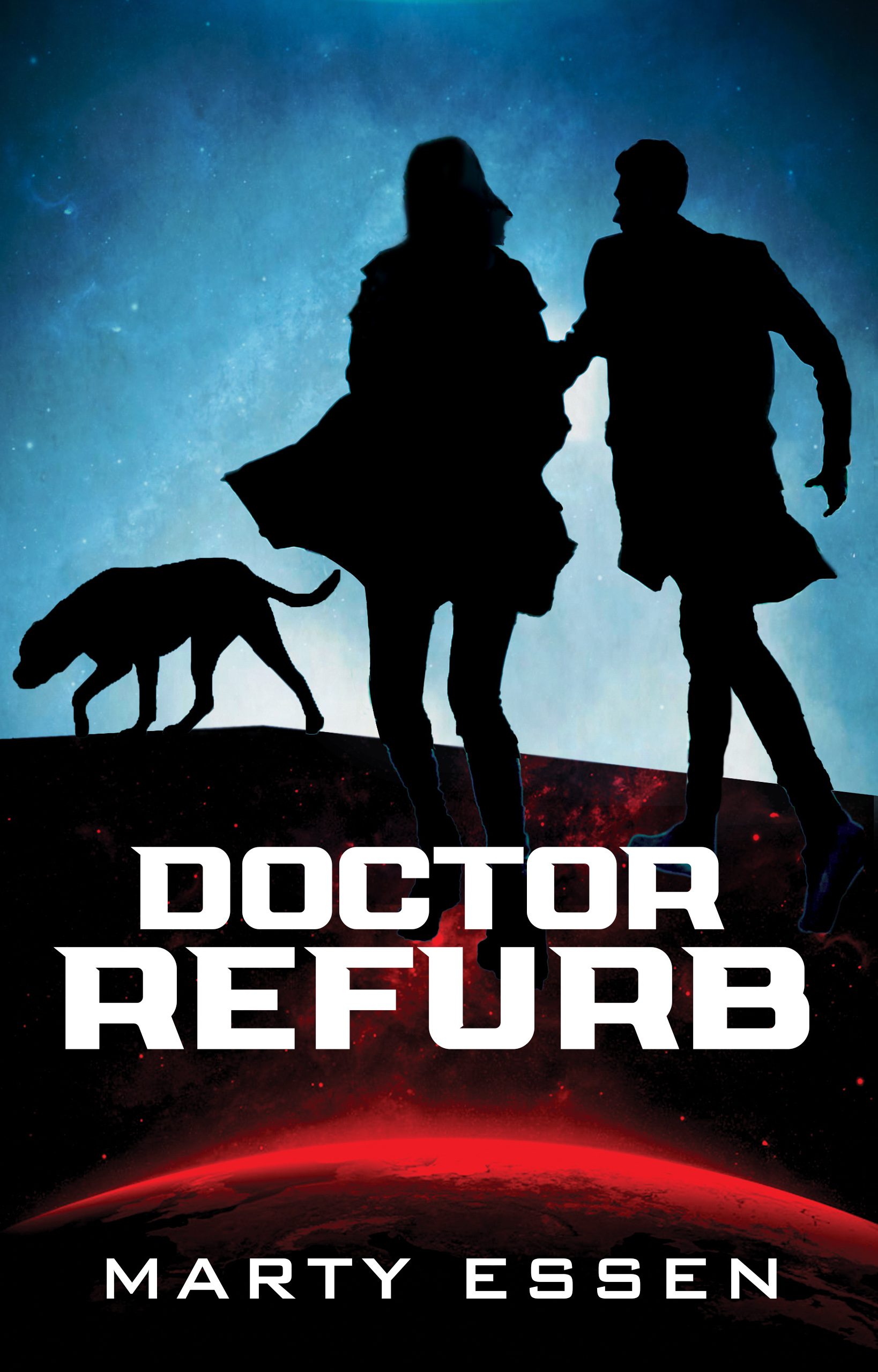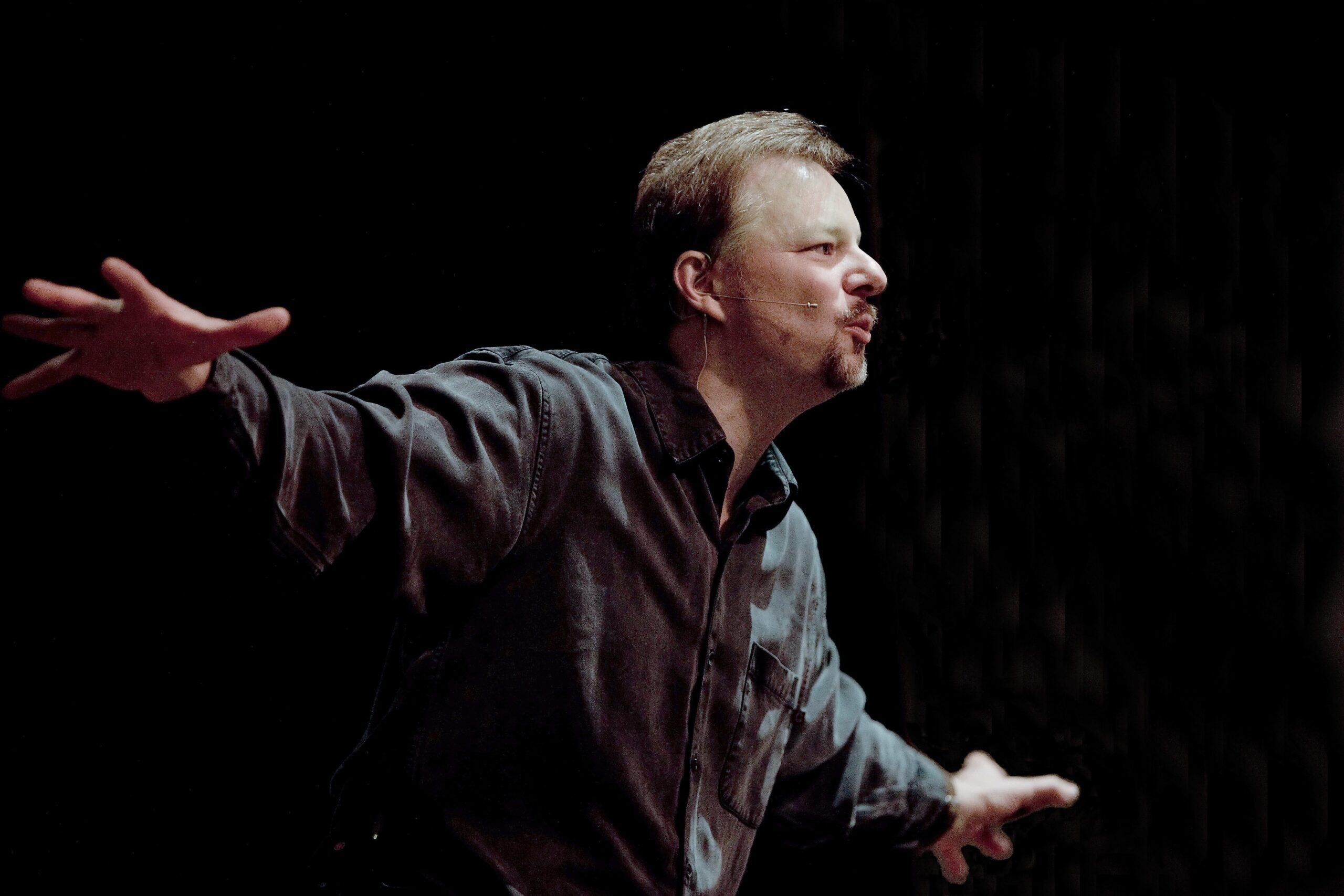Shelf Media hosts the annual Shelf Unbound Indie Best Book Competition for best self-published or independently published book. You can find the winner, finalists, long-listed, and more than 100 notable books from the competition in the December/January 2023 issue of Shelf Unbound.

An unconventional, satirical, controversial, time travel comedy!
What if you could reach back in time to deport the world’s worst environmental villains to a depository planet before their greed condemns Earth to an ecological apocalypse? What if each time you did so, an alien instantly extracted a body part and replaced it with a refurbished one? Would you still do it?
Heartrending yet hilarious, Doctor Refurb is influenced by actual historical events and confronts the serious subjects of climate change, far-right politics, and child abuse committed by Christian authorities.
About The Author: Marty Essen

Marty Essen began writing professionally in the 1990s, as a features writer for Gig Magazine. His first book, Cool Creatures, Hot Planet: Exploring the Seven Continents, won six national awards, and the Minneapolis Star-Tribune named it a Top Ten Green Book. His second book, Endangered Edens: Exploring the Arctic National Wildlife Refuge, Costa Rica, the Everglades, and Puerto Rico, won four national awards. Marty is also a popular college speaker. He has performed the stageshow version of Cool Creatures, Hot Planet on hundreds of campuses, in forty-five states. Marty’s latest books, Time Is Irreverent and Time Is Irreverent 2: Jesus Christ, Not Again! are science-fiction political-comedies.
Interview with Marty Essen
Tell us a little about your book.
ME: Doctor Refurb was published in mid-September 2022, to coincide with Banned Books Week. I chose that week because of the controversial nature of the novel. In fact, one of the advertising taglines I use is: “Read it before it becomes the most frequently banned book of 2033! (We’re time travelers; we checked.)”
What was your inspiration for the idea?
ME: Whether writing nonfiction or fiction, all my books reflect my values of protecting human rights and the environment—and I try to project those values with a wry sense of humor. But even when I’m writing fiction, I draw on facts. Inspiration for Doctor Refurb began almost twenty years ago, when I explored a cave in Belize with an indigenous man. When we came across some old broken pottery, deep inside the cave, he explained to me that this was where his people hid to escape Christian missionaries and practice their own religious beliefs. Later, I did more research into abusive missionaries, molesting priests, and the torture and murders of thousands of indigenous children in Canada’s Christian residential schools. With Doctor Refurb, I hope to give more exposure to such incidents and also tie it into the use of Christianity by the far-right to normalize the abuse of our environment. It all sounds depressing, I know, but Doctor Refurb is still a hilarious book, filled with madcap time-travel adventures.
What was the experience of writing this book like for you?
ME: For Doctor Refurb, my writing experience was pretty much the same as it was for my other novels. Unlike many authors, I don’t plot out my books in advance. Instead, I come up with a story idea and an ending (which will invariably change later), crank up the music, and write. I can’t write without music playing, because it keeps me from getting distracted, and, if I’m lucky, within a chapter or two, my characters will take over my fingers and type for me. The only disadvantage of this method is that my characters are generally sloppy when they type, and I have to spend hundreds of hours after the first draft going back and correcting their errors.
What was one of the most surprising things you learned while writing this?
ME: I write in a genre that I call “ScienceFiction Political-Comedy.” As with my previous novels in that genre, I mix real facts into a story that would be impossible without help from advanced aliens. One of my goals for this novel was to show the brutality of Christianity throughout history. My intent wasn’t to be anti-Christian. Instead, I wanted to teach people about events that many would like to have swept under the rug and forgotten. When humans ignore uncomfortable history, they can’t learn from it, and are likely to repeat it.
Despite knowing what I was getting into, I was still shocked by the cruelty of Christian authorities—especially toward children. When my protagonists time travel back to 1957 Italy to save children from abuse at a fictional Catholic School for the Deaf, that part of my story was inspired by interviews I had read from former students at an actual Catholic School for the Deaf.
Similarly, when my protagonists time travel back to 1919 Canada, in an attempt to put an end to Canada’s forced-attendance Christian residential schools for indigenous children, the brutality those children were subjected to was shocking.
Here’s a paragraph from Doctor Refurb, where my female protagonist, Tara Kramer, is reciting her research to my male protagonist/ narrator, Dr. Stefan Westin. Essentially, she is reciting my real-life research:
Tara, who was sitting opposite me at the kitchen table, looked up from the research she was doing on her smartphone. “If we can help in any way, we must do so. When I think of Canadians, the image that comes to mind is that they are the nicest people on Earth. While overall that may be true, what they did to those indigenous children was hideous. Canada’s goal was to assimilate the children into a white European colonial culture. Separating them from their families was just the start. They took away their native beliefs and traditions and forced them to become Christians. As part of that cultural genocide, they cut the children’s hair short, dressed them in European-style clothing, and forbade them from speaking their native language. Those who violated the rules were severely punished. Among the punishments the Christian leaders subjected the children to were tongue-piercings with needles, if they spoke their native language; locking them in cages, if they tried to escape; and shocking them, if they committed various other violations.”
In real-life, over 6,000 indigenous children died in those schools.
What is the one thing you hope readers take away reading this book?
ME: I write to inform and entertain. So while I want my readers to learn about Christianity’s depressing hidden history, I also want them to enjoy the book. Sometimes it’s a difficult line to walk, but in the end, Doctor Refurb is a laugh-out-loud madcap comedy.
What are you working on next?
ME: To-date, I’ve written three nonfiction books and four novels. All of those books share a political theme of speaking out for human rights and the environment. For each new book, I try to challenge myself to do something I haven’t done before. One thing I’ve said in other interviews is that “I could never write a nonpolitical book, because I need to feel like I’m changing the world, in some small way.” So that’s my challenge for book eight. I’m 20,000 words into a novel, tentatively called Barry and Beth, which is about two old high school sweethearts who meet up again, fifty-eight years later, and head out on a grand, well-intentioned crime spree. While I won’t be able to avoid some social commentary, my goal is to write a novel that both liberals and conservatives will enjoy.

Continue Reading…
Article originally Published in the December/January 2023 Issue “2022 Indie Best Award Winners”
